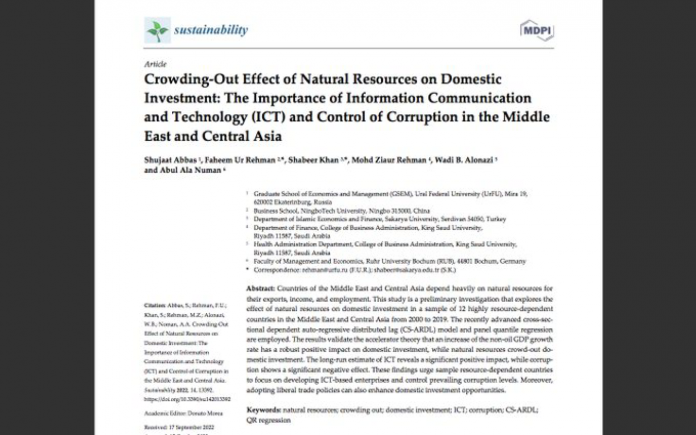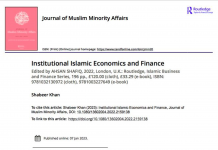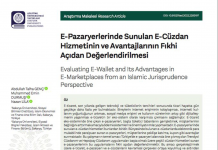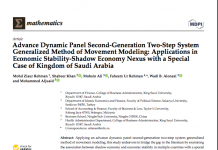Erişim Linki: https://www.mdpi.com/2071-1050/14/20/13392
Abstract
Countries of the Middle East and Central Asia depend heavily on natural resources for their exports, income, and employment. This study is a preliminary investigation that explores the effect of natural resources on domestic investment in a sample of 12 highly resource-dependent countries in the Middle East and Central Asia from 2000 to 2019. The recently advanced cross-sectional dependent auto-regressive distributed lag (CS-ARDL) model and panel quantile regression are employed. The results validate the accelerator theory that an increase of the non-oil GDP growth rate has a robust positive impact on domestic investment, while natural resources crowd-out domestic investment. The long-run estimate of ICT reveals a significant positive impact, while corruption shows a significant negative effect. These findings urge sample resource-dependent countries to focus on developing ICT-based enterprises and control prevailing corruption levels. Moreover, adopting liberal trade policies can also enhance domestic investment opportunities.
Abbas, S.; Rehman, F.U.;Khan, S.; Rehman, M.Z.; Alonazi,W.B.; Noman, A.A. Crowding-Out Effect of Natural Resources on Domestic Investment: TheImportance of Information Communication and Technology(ICT) and Control of Corruption in the Middle East and Central Asia. Sustainability 2022, 14, 13392.https://doi.org/10.3390/su142013392








